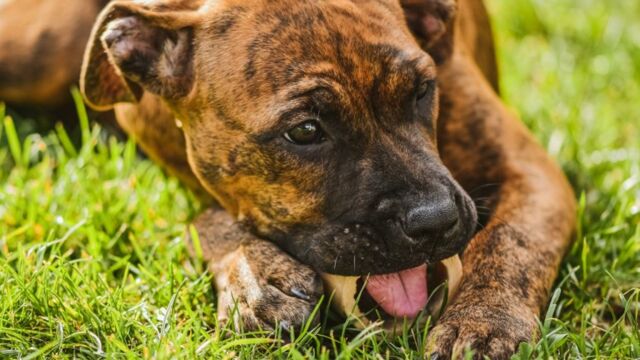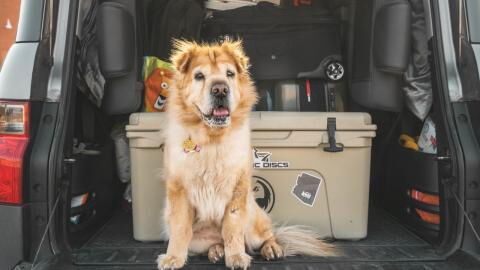According to The Kennel Club, a survey of 1,500 dog owners found that nearly 70% of pets ate plants every day or at least once a week. This behaviour was found to be especially common in younger dogs. Dogs are omnivores, so eating both plants and meat is natural for them.
Discover our latest podcast
Why does my dog eat grass?
Canines graze on grass for a variety of reasons. They may eat it because they like the taste or texture. It is not necessarily linked to health issues or dietary deficiencies.
Another reason behind chewing plants can be boredom. If your dog isn’t getting enough mental stimulation, it may turn to such behaviour.
The less usual cause behind the habit is that your dog needs to make itself sick to settle its stomach. However, a survey of around 1,500 dogs found that fewer than 1 in 10 pooches showed signs of being ill before they ate grass, and only a quarter was regularly sick afterwards.

Some researchers have suggested that canines may eat grass to get more fibre into their diet. In one case, a dog had regularly been eating grass and being sick for seven years, but quit the habit when put on a high fibre diet. Consult your vet if you think of changing your pet’s diet.
It’s fascinating, but the grass can also help your pet get rid of parasites. Scientists suggest the undigested grass could clean out the gut by wrapping itself around any parasites and removing them as it passes out of the digestive tract.
Shall I allow my pet to eat grass?

It is considered safe for healthy dogs to eat grass. To keep your pet safe, make sure there are no herbicides, pesticides or fertilisers on the greenery your pooch nibbles. Unfortunately, animals can become violently ill after ingesting these toxic chemicals.
While eating grass is normal behaviour, it's not completely risk-free, according to PawTracks. Lungworm, a dangerous infection contracted by ingesting a parasitic lungworm, is one problem to look out for. Your pup may be able to contract it by consuming plants with the trail of mucus left behind by snails and other carriers.
It’s important to contact your vet if your dog eats grass instead of their food, consumes too much of it, vomits or appears unwell.
Read more:
⋙ Is your dog’s breath stinky? This is what you can do about it
⋙ Feeling bored on dog walks? Test these 5 original ideas to make them fun again
⋙ 5 mind-blowing facts about your dog’s most important organ















